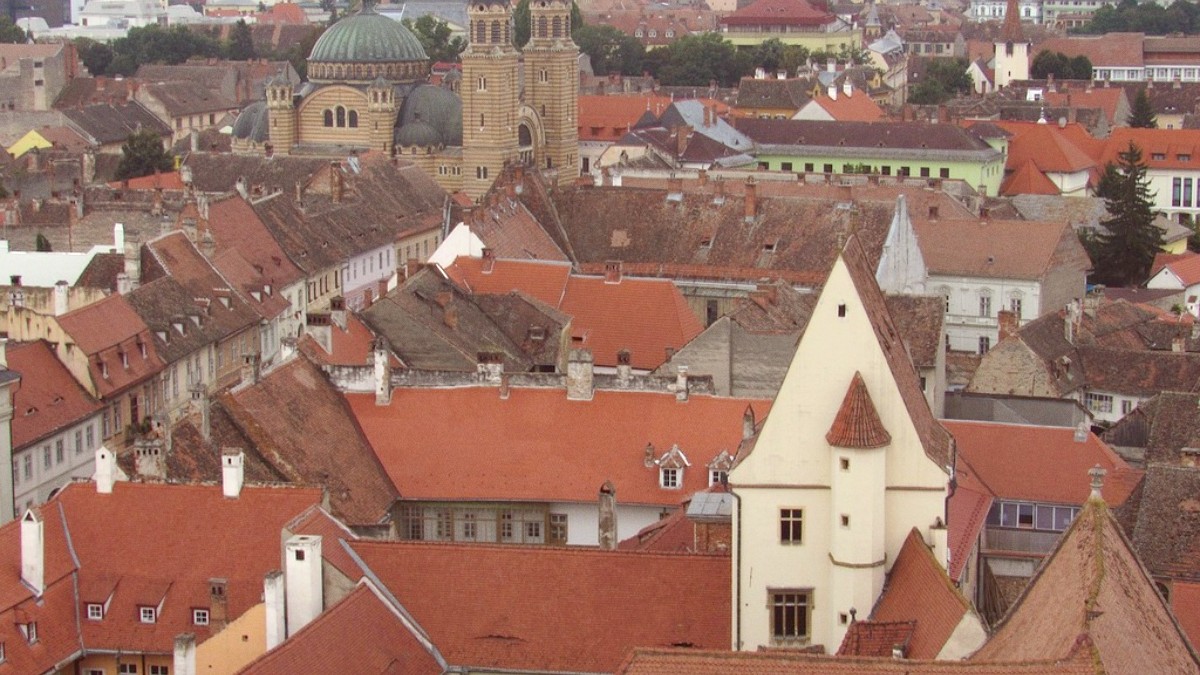
Transylvania, Romania
Romania offers mobile coverage nationwide. Major providers are Orange, Vodafone, and Telekom. Prepaid SIM cards, "Cartelă PrePay," are affordable and available at kiosks, supermarkets, or official stores. You register with your passport. Consider an ESIM from Airalo for simple setup.
Free Wi-Fi is common in Sibiu, found in most cafes, restaurants, hotels, and many public spaces, including main squares. A local SIM card provides mobile data for connectivity where Wi-Fi is not available. For continuous access, consider a portable Wi-Fi device like Solis Wi-Fi.
Poșta Română, the Romanian Post, operates offices throughout Sibiu. You can send mail and parcels from these locations. Look for yellow post office signs for service points.
Romanian is the official language. English is common among younger people and in tourist areas like hotels, restaurants, and attractions. German is also understood by some, particularly older individuals with Saxon heritage. For broader communication, a translation app is beneficial. Consider Rosetta Stone for deeper language learning.
Learning a few Romanian phrases demonstrates respect and can enrich your interactions with locals.
Shops generally open 09:00/10:00-18:00/20:00 weekdays, shorter on Saturdays, and some smaller shops close Sundays. Supermarkets stay open until 22:00. Restaurants open for lunch from 12:00, dinner from 18:00, often until 22:00-23:00. Cafes open early, close late.
Banks operate weekdays, typically 09:00-17:00, closed weekends and public holidays. ATMs are common across Sibiu, in the Old Town, at bank branches, and in large supermarkets. Cash withdrawals are simple.
Some mountain attractions, like the Transfăgărășa Road and Bâlea Lake Ice Hotel, are seasonal. Tourist attractions may have shorter hours in low season (winter, excluding Christmas market, and early spring/late autumn). Verify hours before visits.
Most museums and attractions operate from around 09:00/10:00 to 17:00/18:00. A common practice finds them closed on Mondays. Always verify specific opening hours, as they may vary seasonally.
Public holidays in Romania affect business hours and public transport. These include New Year's Day, Orthodox Easter, May 1st (Labor Day), St. Mary's Day (August 15th), St. Andrew's Day (November 30th), National Day (December 1st), and Orthodox Christmas. Many businesses close or have reduced hours; public transport may run less frequently.
For specific establishments, a quick online check or phone call before your visit is a good practice.
Navigating local customs smoothly enriches your travel experience.
A handshake is common when meeting someone new. "Bună ziua" (Good day) is a respectful general greeting; "Bună" is informal. "Sărut mâna" (literally "I kiss your hand") is a traditional, respectful greeting from a man to an older woman. It is not typical for women to use this greeting.
Casual clothing is generally fine in most public spaces in Sibiu. Modest dress, covering shoulders and knees, is proper and appreciated when visiting churches and monasteries. This attire shows respect for the religious site and its traditions.
A 10% tip is a standard practice in restaurants. For cafes and bars, rounding up or leaving a small amount is typical for good service. Observe local practices, though a 10% tip is a safe approach.
Photography is generally allowed in public areas. Asking for permission before photographing individuals, especially in rural settings or during religious events, shows respect. Some museums or private establishments may have restrictions or require a small fee for photography; look for signs.
A positive demeanor, a smile, and respect for local traditions will lead to warm interactions and a richer travel experience.
Sibiu's historic character presents certain accessibility challenges, but improvements continue.
Sibiu's Old Town, with its cobblestones, narrow sidewalks, and numerous stairs (especially between the Upper and Lower Towns), presents challenges for those with mobility issues or using wheelchairs. Newer city areas and modern developments generally feature improved infrastructure.
Modern museums and larger public buildings are more likely to have ramps or elevators. Some newer public buses may have wheelchair access, though this is not uniform across the fleet. Ride-sharing services like Bolt might have accessible vehicle options; check the app for specific categories. Research specific attractions beforehand to confirm their accessibility features.
Specialized services for travelers with visual or hearing impairments may be limited. Traveling with a companion or preparing necessary digital aids and communication tools is advisable.
Specific local organizations focusing on accessible travel in Sibiu may be limited. General travel forums and blogs may offer advice from other travelers with similar needs.
For specific accessibility needs, contacting hotels, attractions, and transportation providers directly before your trip is a good strategy.